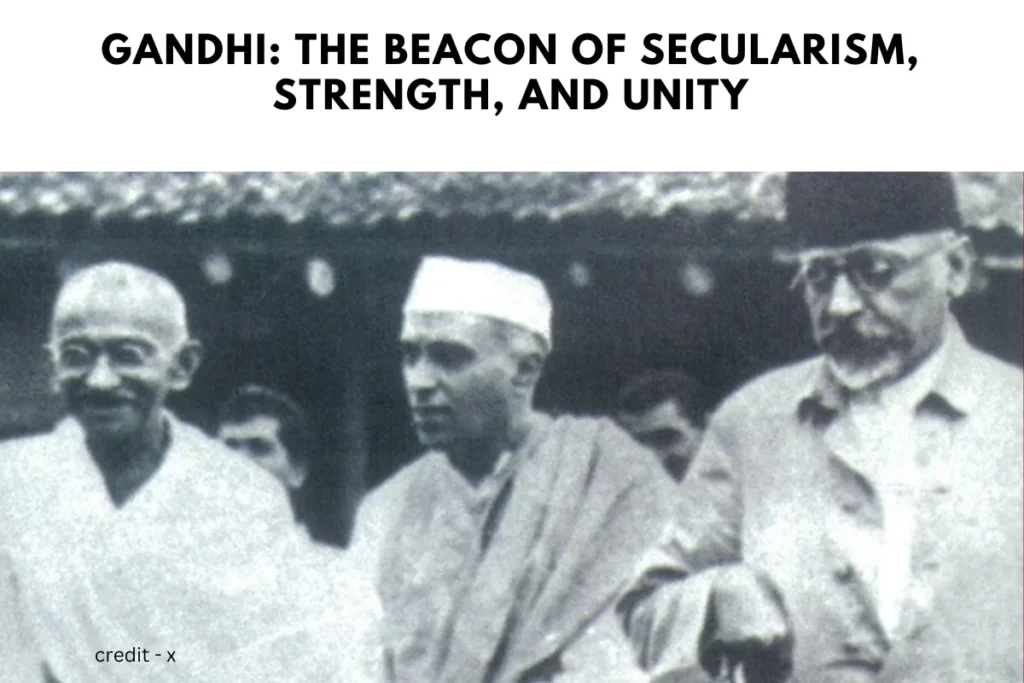
There have been instances of hateful calls, and even today, some people express a desire to harm Gandhi. Their aim seems to be to create a belief that while Gandhi may have played a part in India’s freedom struggle, his significance ends there. However, he represents much more. He symbolizes strength. His vast and diverse journey may be easy to criticize, but Gandhi stands firm in his principles.
At a time when India was engulfed in religious bigotry, Gandhi emerged as the torchbearer of secularism. His vision of secularism stands out as a unique model of freedom and inclusivity. During the 1921 Khilafat movement, Gandhi famously stated, “India belongs to both Hindus and Muslims.” In a society where communal harmony was rare, Gandhi made the dream of shared dining among communities a reality.
Gandhi’s image transcends alienation. With an unshakable belief in his faith, he turned the idea of a unified nation from a collection of provinces into a reality. He saw the potential in India’s youth and public, advocating for their rights as citizens long denied to them. During a time when princely states held immense power, Gandhi crafted a vision of a sovereign, anti-imperial India. He wasn’t just an elite figure; he was a messiah for the oppressed. The transformation of Gandhi into Mahatma was first witnessed in Champaran, where he demonstrated that true power lies in unity and integrity.
Today, Gandhi’s principles are needed more than ever. We face a shortage of belief in one another, a lack of coexistence and harmony. To address this, we must revisit Gandhi’s teachings. Despite criticism, Gandhi chose non-violence as his tool, recognizing the power of silence, consistency, and societal acceptance. His belief in non-violence wasn’t about fear or privilege but was rooted in self-belief and adherence to ideals.
Gandhi empowered the common Indian, making them realize their worth as citizens after centuries of oppression. He was also the flagbearer of self-respect and dignity through the Indian National Congress. Gandhi recognized the strength in diversity and used it to counter majoritarianism and fascism. He believed that identity should be inclusive, creating connections among all communities.
For me, Gandhi represents the foundation of Indian identity. He is synonymous with tolerance, secularism, anti-fascism, and the pursuit of truth. As the “Father of the Nation,” He gave the people of India a shared identity, making them stakeholders in the nation’s future. His presence was often celebrated as divine, and he reminded people of their power to change their destiny, famously stating, “Nobody can frighten you unless you choose to fear them.” Gandhi’s India is a living embodiment of love, silently standing strong against injustice.
for more updates follow ANN MEDIA on facebook , X , Instagram and Linkedin







